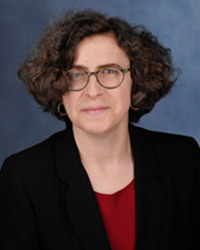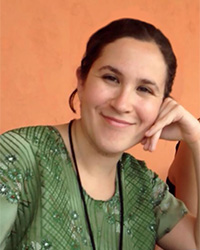
Resident Fellows Speaker Series
The Hall Center's Resident Fellows give lunchtime talks about their works-in-progress. These events are public and open to all, with a buffet lunch available for the first 45 attendees.
Judgement and the Human
Paul Outka (Associate Professor, English)
MON FEB 16, 12:00 PM
Hall Center Conference Hall

Paul Outka’s book project, Judgment and the Human, argues that we should consider twenty-first century questions about how to recognize artificial and other forms of nonhuman intelligence in the context of a much longer history of judgments about which individuals or groups “count” as human, and which humans get to make such judgments. Outka takes this approach as a corrective to the tendency in popular and academic discussions of AI and techno-culture to view the posthuman as both emergent and disjunctive, a radical historical break between an old-tech humanism and a profoundly new and uncertain materialist future. Whether utopic or dystopic, Outka argues such disjunctive understandings of contemporary technological change obscure their profound political entanglement in earlier and much more troubling discourses about the relation between embodiment and human identity.
Temporal Shifts in Twenty-First Century Hispanic Historical Fiction of Spain’s Imperial Age
Patricia Manning (Professor, Spanish & Portuguese)
WED MAR 25, 12:00 PM
Hall Center Conference Hall

Historical fiction was widely popular in the 2020s Hispanic world. In the initial decades of the twenty-first century, male authors predominate in historical novels published in Spain. One extremely popular subgenre’s martial tales of European soldiers, sailors and missionaries offer conservative fictionalizations of the era that marked the high point of Spain’s imperial powers. Women writers setting historical novels in the same time period, however, depict a broader swath of the population of the empire, including women and people of color. By doing so, their novels more closely approximate the historical reality of the Spanish empire.
Beyond differences in focus, narrative techniques regarding temporal shifts—narrative frames in the present and analepsis and prolepsis within imperial plot lines—also differ across gendered lines. Manning analyzes the significance of these temporal shifts and their effects on readers. The historical accuracy and relationship to the present in these popular novels have implications beyond literary analysis since nostalgic martial novels of Spain’s halcyon days now help to fuel the Spanish right’s hopes to return to what they deem more traditional values.
Standing on Osage Land in Southwest France
Abigail Scott (Sias Graduate Fellow, History)
MON APR 13, 12:00 PM
Hall Center Conference Hall

In 1827, two French merchants abducted six Osage people to Le Havre, France. The town’s population rushed to the port for a glimpse of the Osage (named Little Chief, Black Spirit, Big Soldier, Little Soldier, Hawk Woman, and Sacred Sun). Over the next three years, these merchants exploited the Osage for personal financial gain. Through aggressive memorialization projects, French conservatives rewrote France's colonial past to justify their perception of being a benevolent colonial power among the world's competing empires in the nineteenth century. This presentation aims to answer three questions: How did this exploitation fuel the French imagination of its former colonies in North America? Second, how did this abduction spur French conversations about the invasion of Algiers? Finally, why does the Osage Nation of Oklahoma own land in Montauban, France?
Colonial Blueprints: Crafting Loyalty in the Spanish Planet
Ninel Valderrama Negrón (Assistant Professor, Spanish & Portuguese)
MON MAY 4, 12:00 PM
Hall Center Conference Hall

This talk explores how nineteenth-century infrastructure in Spain’s last colonies—ephemeral monuments, statues, promenades and urban plans—shaped political imagination as much as they organized daily life. Ninel Valderrama Negrón focuses on projects in Cuba and the Philippines that she calls “infrastructures of the Spanish Planet,” designed to exalt King Fernando VII and symbolically reclaim an empire Spain had largely lost. By shifting attention from metropolitan centers to colonial borderlands, Valderrama Negrón shows how these ornamental infrastructures operated as political technologies: they sought to inspire loyalty yet often generated negotiation and alternative visions of modernity. Drawing on tri-continental archives and interdisciplinary approaches, she situates these materials within Global Hispanophone Studies and highlights connections between the Caribbean and the Philippines that move us beyond Atlantic-centered narratives. Ultimately, the talk invites us to reconsider what counts as “colonial” and “modern,” and to understand infrastructure not only as material design but as a critical site where imperial worlds were made and unmade.